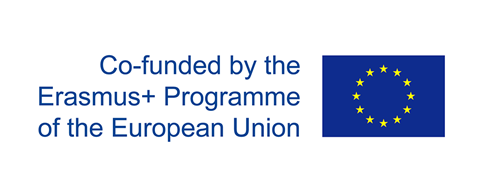VINCE: Validation for Inclusion of New Citizens of Europe – An Erasmus+ Project
Introduction
The number of newcomers and refugees who reach Europe, escaping from wars or critical life conditions and looking for new life opportunities, has increased dramatically in recent years. These people face many challenges in settling into Europe, and among these challenges are the obstacles to accessing the labour market or to continuing their studies. Migrants and refugees are in practice often prevented from enjoying their rights by many legal and practical barriers. This also represents an obstacle to their integration into hosting societies. One of the main challenges newcomers face is that, although they are often educated and skilled, their competences may not be recognised in the host society. Sometimes they even reach their destination without documentation to prove their education level in their countries of origin. Taking into account this reality and wishing to facilitate the integration and the inclusion of newcomers in our societies, eucen (European university continuing education network) launched a project aimed to give professionals working in the validation of non-formal and informal learning (VNIL) in higher education (HE) a set of tools to deal with the extra difficulties of assessing migrant and refugee cases of validation of current Europe. The project was funded under the Key Activity 3 funding programme “Support for Policy Reform – Social inclusion through Education, Training and Youth” (Call EACEA-05-2016).
The project
The VINCE – Validation for inclusion of new citizens of Europe project consortium represents a wide spectrum of experiences and expertise, bringing together different types of organisations from various sectors: Higher Education Institutions (HEIs), VET providers, NGOs, Associations/European-wide associations and an ENIC-NARIC Centre.
The project started 31 December 2016 and finished 31 December 2019. During these three years, VINCE has enabled a space for discussing and sharing situations and solutions between VNIL professionals and has produced a number of tools for HE validation professionals that work with newcomers, as well as a policy paper to influence policy makers to make special provision for VNIL in general and to improve the newcomers’ situation and to give training to professionals attending to newcomers’ needs in particular.
Main outputs
- Country profiles – the project has revised and updated the country factsheets developed by eucen’s project OBSERVAL-Net into a new set of 33 country profiles illustrating how VNIL practice and procedures in HE are implemented all over Europe.
- Case studies of validation practices – these documents illustrate experiences of validation professionals and refugees regarding validation and recognition procedures. They are accompanied by a Commentary Report which summarises the main features of the collection and draws key conclusions and recommendations.
- Guidelines for Higher Education staff to help migrants and refugees – these are templates for HEIs, containing frequently asked questions (FAQs) from refugees and migrants concerning 5 different areas (Welcome to Europe, Welcome to this Country, Welcome to Higher Education in Europe, Welcome to this Institution, Welcome to Validation). HE professionals can use the templates and adapt them based on their country’s and/or institution’s specifications. The templates are available in EN, DE, DK, ES, GR, FR, IT, NL, NO, SI, HU and can be downloaded for direct use or adaptation.
- Prototype Training Course for Higher Education staff to help migrants and refugees – this is a generic Professional Development Course (CPDC) which aims to provide the reader with insights and ideas for developing staff training for validation professionals who work with candidates from other countries during their adaptation processes to our society. It contains references to the other tools developed by VINCE and examples taken from the case studies’ collection. The prototype is available in EN, FR, DE, DK.
- Policy Recommendations – these recommendations propose ways to deal with the recognition of the skills of newcomers. The document is addressed to policy makers, HEIs/VET institutions and newcomers in Europe with the expectation that the recommendations are taken into consideration and, subsequently, adopted. This document is available in EN, FR, DE.
All the outputs of VINCE are available on the project website.
Citation: Francesca Uras, Carme Royo on behalf of the consortium (Ed.) (2019): VINCE Executive Summary on behalf of the VINCE consortium © The VINCE consortium, 2019

